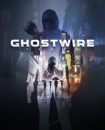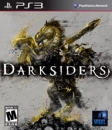Machina said:
One problem is they are official site reviews. The site can't really have two different official reviews*, which is partly why I now regret us doing new reviews for Director's Cut versions of what were still very new games.
An extension of that is it also poses this question: which review becomes the site's official review on aggregate sites? The first one, or the second one, and why?
While I certainly see merit in an updated look at a game that may have been patched extensively and given significant free content updates (I'm thinking something like No Man's Sky, which by most accounts is now a radically different and much better game), I think this is more appropriately covered in an article rather than a second scored review that in a way overwrites/overrides the original.
*(I will say I do like the Famitsu approach of having 4 individual writers giving their scores, which are then added together to give a combined Famitsu total, but that's not feasible for any but the biggest outlets. It's also slightly different in that the separate reviews/scores are all done at the same time and it's baked into their system from the start, rather than being haphazard after the fact.)
|
"VGChartz's Lee Mehr hated this game, but man oh man did VGChartz's Craig Snow pull through for us and gave it a 9/10!" - potential accolades trailer
The aggregate site question is definitely another good argument for the professionalism strand in OP. Though it seems places like MetaCritic would be more accommodating, since they split up votes between different versions. So long as the synopsis on Meta outlining the special conditions for something like No Man's Sky, perhaps most of the audience wouldn't feel like either is more "official" than the other. For example:
No Man's Sky 2016 on PS4: "Buggy, mismanaged, and unwelcoming, NMS represents the pitfalls of a near-infinite universe."
No Man's Sky years later on Xbox One: "The long journey since NMS' contentious launch years ago fulfills more of its initial concept's promise, though yada yada yada."
In my mind, as long as it's carefully worded, I think both can be considered "official" for their respective time. But like you said: maybe all supplementary "x years later reviews" could be slotted as score-less or articles instead.



























































